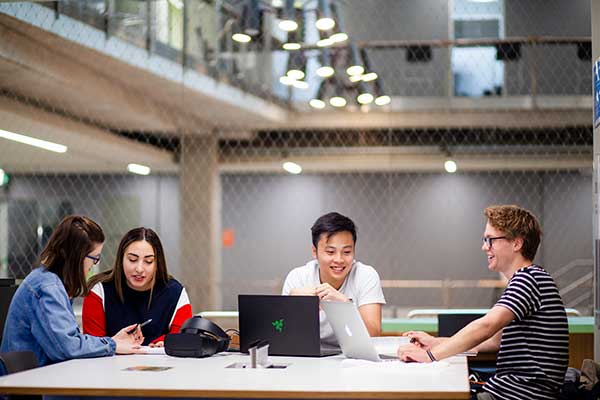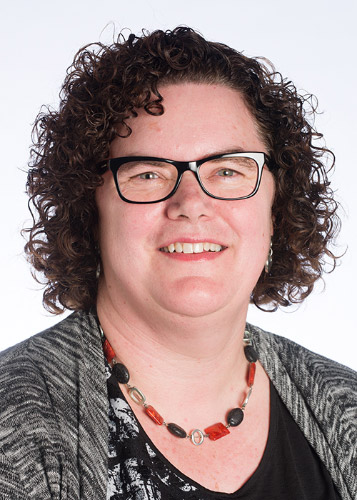Academic experts in schools
Academic Experts in Schools is a program to connect the Faculty of Engineering and Information Technology to your classroom.
By connecting high school students and teachers with engineering academics we bring our cutting edge engineering research and teaching to a broader audience and help high school students gain a better understanding of the breadth of possibilities in the STEM fields.
How it works

Engineering academics can provide expert advice on STEM topics to school students and teachers through a Q&A session via video conference.
Want an explanation of fluid mechanics or to know how chemical engineers are working on solutions to climate change?
Interested?
Send us an email about your topic and we will connect you with an academic expert:
cbe-admin@unimelb.edu.au
Prof Andrea O’Connor’s meeting with students from Taylors Lakes Secondary College

I spoke to Year 8 students and teachers (Ms Maria Lelekakis and Ms Elizabeth Green) at Taylors Lakes Secondary College. The topic was ‘Nano-Particles against Superbugs’, which was triggered by a Deep Learning project being undertaken by the class.
One of the students contacted me having seen an article from the University about my research. He had some well-thought-out questions and, after an email exchange, the teacher invited me to meet the whole class for an online Q&A session.
The teacher wrote: I truly think the students as a whole would really appreciate your experience and knowledge in this area and more than this, I hope to instill these kids with a real life time appreciation of science and unique opportunities such as this would offer a memorable and positive experience.
The class sent me a thank you card afterwards as well.
I enjoyed talking to the students about the research that I am passionate about. It was very engaging because the students were working on a project related to my research so had thought about it and planned some good questions before we met.
I think this is a great way for academic researchers to engage with school students in a flexible and efficient manner that is relevant to the students.
Explore our research
Making milk powder less energy intensive
A new pilot study demonstrates the potential to use a cheese by-product to concentrate skim milk, reducing the energy required in dairy powder production
3D printing medical equipment for COVID-19
The 3D printing space thrives on open source collaboration, and is proving ideal for designing and prototyping customised solutions for medical personal protective equipment
Wastewater surveillance to provide early warning of COVID-19 outbreaks
Victoria is launching a monitoring system to track the movement of COVID-19 in the state’s population by identifying the presence of the coronavirus in the sewerage system.